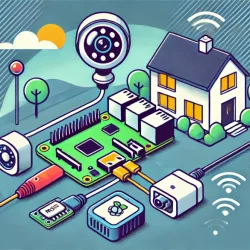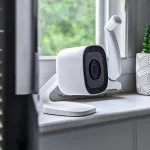How to Respond To a Security System Alarm
The nightly sequence has become a familiar routine: Your security system is active and armed. You have checked to insure the doors and windows are locked, and you have set the garage door opener to ignore wireless signals.
You are ready for bed, and it feels good to know an invisible barrier of protection is guarding your home and your family. You can sleep well, knowing that both you and the police will quickly be alerted to any threat—whether by fire, flood, gas leak or home invasion.
What if?
But what if the alarm begins to sound in the middle of the night? What do you do then? Without a well thought out response, your peaceful sleep can turn into pandemonium.
Your actions after the security system has been activated are crucial. Unfortunately, a response plan is the part of the home security system that is most often missing from the manual.
Don’t wait for a potentially dangerous situation to jar you into action. You want to have already determined what you will do. Your plan should be so ingrained that you can respond instantly and with confidence, no matter what time of day or night it occurs.
Security starts now
There are only a few basics. But they can be critical
- The best way to get through a home invasion is to avoid it in the first place. Security begins outside the home. Use motion-activated lighting to let approaching individuals know they are being monitored. Thieves don’t like being seen. Likewise, cut away shrubbery to get rid of potential hiding places near windows. And never leave your keys in a vehicle or a spare set hidden outside the house.
- Remember to lock all doors, check all windows and turn the alarm on. Most home invasions are not break-ins, but walk-ins. When the door is unlocked, the criminal is granted unimpeded access to your home.
- Keep your car keys and a cell phone by your bedside. Have your phone preset to dial 911 with the press of a button. If your alarm goes off in the night, don’t shut it off. Let it continue sounding. (Make sure you know the password or passcode for your security system. When the alarm monitoring company calls, they will ask you for it.)
- The status indicator on your alarm console will tell you where the alarm originated. You must determine whether the problem is real, accidental, or unnecessary (perhaps a family member tripped the alarm accidentally or a sensor has come unattached from its base). Should you discover the alarm is warranted first call 911 to let them know the nature of the emergency.
- If you find fire or smoke, awaken your family and get everyone out (you should have a fire escape plan already planned and practiced). If you see or hear an intruder, use your car keys to set off your automobile alarm. The extra noise will serve to convince the offender there is too much attention being drawn to the situation.
- If you do confront a bad guy, firmly demand he or she to leave immediately. Take mental descriptive notes so you can later help to identify the person or persons. Don’t block the intruder’s exit. Your goal is not to detain the person, but to help him decide to leave.
- If you find the alarm was unnecessary, enter your “Cancel Alarm” code at the main panel and be ready to give the monitoring company your password for “All Clear” when they call. Never leave a broken system broken. If a sensor has failed, replace it without delay. Immediately re-arm your system after it is reset.
You have done the right thing. You have invested in a home security system and you are using it properly. Now, take the time to know exactly what to do when a response is necessary. Practice these steps. Go over them with every member of your household. Work up a plan that includes fire emergencies, medical emergencies and security emergencies. The better prepared you are, the better protected you and your family will be.
This article courtesy of Casey Windsong. Casey cares about personal safety and home security.
More to Read:
Previous Posts:




